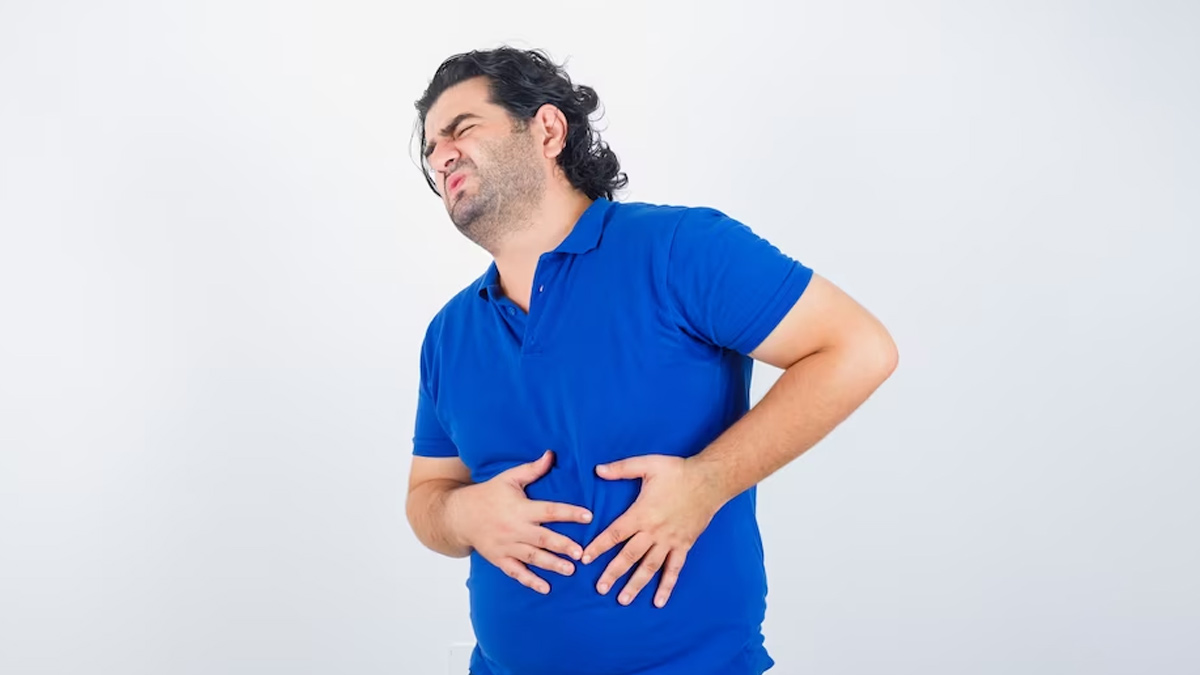
Have you ever heard of a gallbladder attack? It can be extremely painful. If you have gallstones, you should be cautious since gallstones can induce a gallbladder attack.
“Gallstones are hard deposits of bile chemicals that get deposited inside the gallbladder and biliary ducts. Gallbladder stones cause severe abdominal pain and should be reported immediately”, said Dr K N Srivastava, Director and Head of Department, General And Minimal Access Surgery, BLK Hospital, Delhi.
Table of Content:-
What's a Gallbladder Attack?
Gallbladder is a tiny, pear-shaped organ located below your liver. It stores bile, which is a digestive fluid that helps in the breakdown of lipids. A gallbladder attack occurs when the flow of bile is disrupted, which is mainly due to gallstones. These little rock-like structures can clog the bile ducts, producing severe pain, nausea, and vomiting.

Why Do Gallbladder Attacks Happen?
Gallstones can also occur due to a number of reasons, including nutrition, weight, and even hormonal changes. Consuming greasy, fried, or processed foods may increase your risk. Being overweight, leading a sedentary lifestyle, or losing weight too quickly can all contribute.
Symptoms Of Gallbladder Attack
If you've had a gallbladder attack, then there is a possibility that you might get to face another one. Gallbladder pain is often different from other types of stomach pain. You could have:
- Strong pain in the centre of your belly, directly beneath your breastbone
- Sharp pain that lasts for minutes to hours
- Dull or cramping discomfort that intensifies quickly in your upper right abdomen
As per Mayo Clinic, around one-third of individuals with gallstones may experience a gallstone attack or other severe symptoms.
Tips for Gallbladder Health
Balanced Diet
Focus on a diet that's rich in fibre, veggies, fruits, lean proteins, and whole grains. This will help maintain a healthy weight and reduce the risk of gallstones.

According to the Journal of Health, Population and Nutrition, trans fats may interfere with the normal function of your gallbladder by increasing the level of triglycerides in your blood. This may raise your chances of developing gallstones.
- You need to incorporate a proper hydration routine
- Drinking enough water keeps bile flowing smoothly and helps prevent stone formation.
- Watch the Fats: Limit saturated and trans fats, often found in fried foods, cakes, and pastries.
- Instead you can go for healthy fats like those in nuts, avocados, and fatty fish.
- Maintaining a healthy weight through a balanced diet and regular exercise can reduce your risk of gallstones.
- Rapid weight loss can trigger gallstones, so aim for gradual and sustainable weight loss.
- Regular physical activity can help keep your digestive system functioning well and support overall health.
- Foods high in fibre, like whole grains and legumes, can help with digestion and prevent gallstones.
- Steer clear of smoking and excessive alcohol, as they can impact gallbladder health too.
Taking care of your gallbladder doesn't have to be complicated. Remember, it's all about balance and making healthy choices.
Also watch this video
How we keep this article up to date:
We work with experts and keep a close eye on the latest in health and wellness. Whenever there is a new research or helpful information, we update our articles with accurate and useful advice.
Current Version